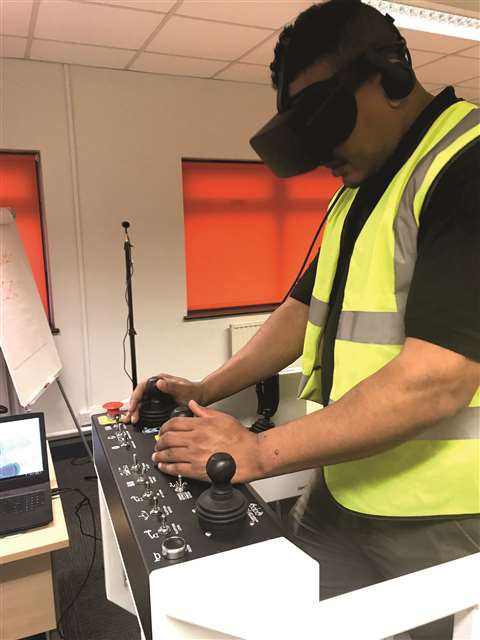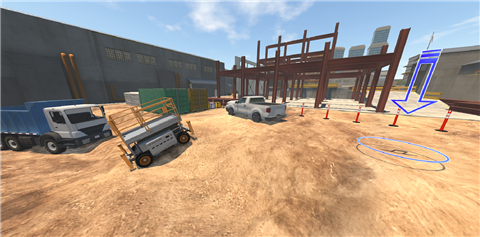VR to extend ALS training
09 August 2018

ALS Safety has taken delivery of a new virtual reality MEWP training simulator, one of just six in Europe.
The simulator combines scissor lift and aerial boom lift modules to provide highly-immersive aerial operator skills training in a fully-controlled environment.
The simulator has been developed by Serious Labs, a Canadian company that specialises in developing VR simulators for military and civilian purposes. This is the first time such advanced technology has been used in aerial platform training.
UK-based ALS safety managing director Darren Verschuren said, “The quality of the VR simulations is impressive and the operational detail, in terms of how a platform moves and behaves, is very realistic.
“VR will add exciting new options to the training we can offer and is already generating a lot of interest from our clients. As such, we believe VR has a strong future in working at height training.”
ALS Safety is the training division of Riwal UK and is now offering VR aerial platform training to clients across the UK, alongside its IPAF, PASMA and CSCS, among others.
The operator gets into a normal platform ‘cage’ wearing VR goggles and headphones. Platform controls are identical the ones he or she would be using at height, while simulator creates full sensations of movement, direction and height, including bumps and swaying in the wind.
The simulator has 18 scissor lift training modules, and 16 boom lift modules with scenarios that include flat and rough terrain.
To achieve International Powered Access Federation (IPAF) accreditation, operatives must still complete training on real machines. But IPAF is consulting worldwide on use of emerging tools, including VR.

Darren Verschuren said, “We will be pleased to share our experience of using VR training with IPAF to help develop use of the technology across powered access industry.
“There is evidence that VR enhances engagement in training, which must be a good thing. It is particularly appealing to younger people, the Millennials, who have grown up with computer gaming technology.
“Just as in the aviation industry, the simulator enables operators working at height to practise tasks and develop skills and muscle memory without exposure to any risk.
“VR is also ideal for training operators how to work under power lines, or at steep inclines. They become extremely aware of their environment and learn the safest way to manage tasks.”
ALS Safety team is still exploring the full potential of the simulator. It could be used in different ways, from running training courses at the ALS Safety training centre, to hiring it out to clients to deliver bespoke onsite training ahead of special projects.




